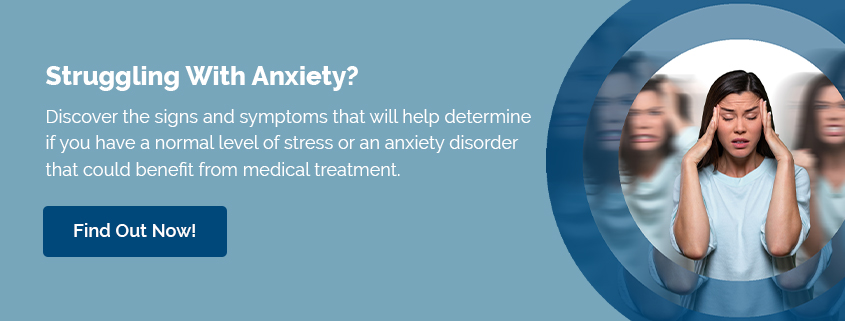Who Can Benefit From Mental Health Services?
People often make assumptions when it comes to mental health needs. But, the truth is that anyone can experience a form of depression or anxiety at some point in their lives — even when they look like they have it all together.
So, who benefits from mental health services most? Why do some people need more support than others? Learn more about the risk factors for mental health problems and how talking with a mental health professional can positively impact a variety of concerns.
People With Substance Use Disorders
Those with substance use conditions are disproportionately affected by one or more other mental health conditions, including anxiety and depression. Unfortunately, their treatment needs aren’t always met. Many people who have substance abuse issues also struggle with physical illnesses or disabilities as well as mental health problems, which makes it harder to get the care needed.
It’s important to remember that substance use disorder is a disease and a mental health problem itself. Genetics determine a person’s susceptibility to addiction problems, and repeated and constant substance use can cause additional physical health problems due to side effects from the drugs used.
Additionally, substance use disorder is commonly co-occurring with other mental illnesses; it can either lead to a mental health issue or can be a symptom of an existing problem. Substance abuse disorder can be treated with behavioral health services, and if other mental health disorders are present, treatment should address those as well.
*If you or a family member need immediate help, call the Substance Abuse and Mental Health Services Administration (SAMHSA) 24/7 National Helpline at 1-800-662-4357.
Adolescents
As a young teenager, adolescents experience a lot of change. The body changes, responsibilities change – the entire world around a young adult changes. And unfortunately, those changes can be difficult to deal with.
According to the National Institute of Mental Health, young adults aged 18 to 25 have the highest prevalence of mental illness at 31%. Compare that to 25% for adults aged 26 to 49 and 15% for those 50 and older. Additionally, the National Alliance on Mental Illness (NAMI) reports that 17% of young kids aged six to 17 have a mental health disorder.
Mood disorders (like depression and bipolar disorder), anxiety disorders (like panic attacks and phobias), and eating disorders are common during this time in life. Young people need to have access to mental health services so they can cope with changes effectively.
Depression, Anxiety and Serious Mental Illness
Mental health services are important for everyone, but they are especially critical for adults with depression, anxiety and serious mental illnesses.
According to the Anxiety and Depression Association of America, depression is the number one cause of disability for Americans aged 15 to 44. And sadly, adults with serious mental illness are disproportionately affected by barriers to care. They are more likely to be unemployed, lack health insurance, and have chronic medical conditions. The combination of these factors places them at high risk for needing mental health services but not receiving them.
These individuals also tend to have more health care needs, including physical health problems that can be related to a psychiatric condition. Health care services for those with serious mental illness can be either inpatient or outpatient health centers, depending on the patient’s needs.
It’s important to know that mental health professionals can help people with depression, anxiety or serious mental illnesses manage their symptoms and improve their quality of life. These professionals include psychiatrists, psychologists, and social workers who specialize in treating mental illnesses, including depression, anxiety disorders, or schizophrenia.
Low-Income Populations
Low-income individuals are at a higher risk for mental illness, but they’re also more likely not to seek out help. This could be because they are less likely to have private insurance or utilize public health systems like Medicaid and Medicare. In fact, disparities in health coverage are one of the most common reasons why people do not take the initiative for mental health treatment.
However, some mental health care providers (often those that are nonprofits) are willing to work with people even when they don’t have active health plans. Additionally, the Affordable Care Act, a newer health policy, provides advocacy for the people who can’t afford mental health assistance, more so than the former health care system.
There are numerous other reasons why those with lower incomes do not seek mental health treatment. Most notably, poverty makes it difficult to take time away from work or school, which can make it harder to even attend appointments.
People living at or below the poverty line are more likely to suffer from physical health problems, too, which can lead to stress and mental illness. This is primarily due to unmet needs, like lack of food and primary care.
New Mothers
Postpartum depression (PPD) is extremely common. It’s marked by feelings of stress, sadness, anxiety, and loneliness following birth, and it often doesn’t go away on its own.
It can present itself days or months after the new baby arrives, and can make it hard to take care of the new baby or even complete daily tasks. About one in seven women experience postpartum depression.
Even without depression, a new baby is a huge change in life. Mental health services like psychotherapy or medication (in severe cases) can help manage this change and its struggles.
People With Trauma
Post-traumatic stress disorder (PTSD) is caused by experiencing or witnessing a traumatic event. Those who have experienced traumatic events benefit greatly from mental health services to work through their trauma.
PTSD can affect a person’s daily life in multiple ways, including trouble sleeping, reliving the event in flashbacks, and issues forming and maintaining relationships. Traumatic experiences can be caused by a single traumatic event or long-lasting traumas.
“Big T” Trauma
Big T traumas are what most people think of when they hear PTSD. These are life-threatening, extreme events like natural disasters, terrorist attacks, gun violence, war, and even the death of a parent.
These events cause an extreme amount of fear or stress, and people with this type of PTSD are likely to relive these moments in their minds over and over again.
“Little T” Trauma
Little T traumas do not have to be life-threatening to affect someone. Little T traumas are ongoing situations that cause feelings of fear, distress, and helplessness.
For example, living through a global pandemic is a Little T trauma. In fact, experts predict a rise in PTSD following the COVID-19 pandemic due to the extended exposure to trauma, and this experience will likely affect community mental health for years to come.
Benefit From Mental Health Services
Mental health services help people manage their emotions and problems so that they can live fuller lives. When it comes to the question, “Who needs mental health services the most?” the answer includes a lot more people than you’d think.
Call Meridian HealthCare today for the first step to a happier, healthier you.






